Newsletter Issue #541: 04 Jul 2021
What's Cookin' in the Stu(dio)
Kia ora tatou,
Now, this may come as a shock to you, or maybe I have told you this before in an exemplary display of my tendency to overshare, but I do not actually play music. In my wider social circle I’m consistently asked the question "what do you play?" to which I solemnly answer ... "Nothing". Not in the cute "I'm just shy and I want you to show more interest before I’ll open up to you" kind of way, like, I really don’t play any music.
Despite my keen interest in the field and the five long years of guitar lessons that must have cost my parents hundreds of dollars, I do not even know so much as how to play Smoke on the Water.
Somehow, I have managed to get this far into the underbelly of New Zealand music scene without being ousted as a phoney. I’ve had the privilege of being on stage with bands through photography, gotten my name on the door and been able to say, "I’m with the band." But I figured that there must be a line drawn somewhere between musician and enthusiast. A secret location where only real musicians can go. On my pondering I realised there is one place I have never been...
A real recording studio.
In a feat of investigative journalism, I set out to find what was really going on behind the closed doors of some of NZ’s little, local recording studios. Ironically, this didn’t entail actually going anywhere so I have still never been ‘inside’. BUT! This month in the newsletter we have interviews with Tiny Triumph Recordings (Wellington) and The Stomach (Palmerston North) for your reading pleasure.
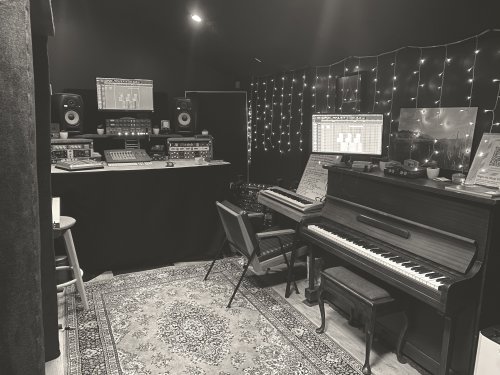
Tiny Triumph Recordings - Studio
Next month we will have some more, very exciting interviews from Grym Rhymney, Black Sands, Gatekeepers and Thousand Limbs through our newest interview series 'The Distorted Transmission'. So stay tuned and tell all of your friends!
xXx
- Beth Mountford
MNZ: Capital BS 005: Toby Lloyd from Tiny Triumph Recordings

Capital BS, live to you from our Capital City, Toby Lloyd of Tiny Triumph Recordings chats to us about All-Blacks, gentrification and demo-itis:
What role do you think recording studios such as yours play in supporting NZ music?
I think it’s really really vital. A lot of bands that I work with go down the route of trying to do it themselves. Which is great, it’s so cool that we’re in a day and age where they can do that and should try and do that. But inevitably what happens is that a lot of bands end up reaching a feeling sonically, when they’re comparing themselves to bands that they love from overseas, that oftentimes their production is less wanting.
It’s usually because, to make great quality art in this field, it takes ten thousand hours, it really does. It’s kind of the equivalent of someone wanting to be an All Black but they only play touch rugby once a month after a few beers with their mates at the beach. The quality of music production is so high these days! When you listen to the Lorde’s of the world, they sound amazing. Back in the day when people used to release music on CD it didn’t matter as much if the quality maybe wasn’t up to par because people would listen to a CD and then take it out, there was no direct comparison between artists.
These days though, with everything being playlisted so you’re literally jumping from [insert local band here] to Kings of Leon. A consequence of that is when people listen to music and it doesn’t sound great, they immediately assume that it isn’t a great song, which obviously is not the case.
So that’s where the importance of studios lies. It’s not necessarily the building or the gear it’s the fact that a lot of people that have been running studios have been doing it for 15 20 years and they know that pointing a microphone one inch in a different direction is going to give you a completely different sound.
The other thing that I think is really important about studios like mine is it means that when an artist turns up to make their music all they have to worry about is turning up and performing. They don’t have to worry about the technical, they literally just turn up, play their music and then they get to go home and I carry on working on it. It’s a very different experience than having to research what equipment you need to buy and then trying to put mattresses up against the walls, trying to run cables, wondering why they aren’t sounding right. All of those things that really have nothing to do with making music. I mean, most people got into music because they wanted to be storytellers, not run cables.

How does the mixing process happen for you?
When I’m mixing I don’t actually like mixing with people in the room because in order to get a really high quality mix you need to get really deep into the music and sometimes that means going into a bit of a weird space. I might be literally looping one word over and over again to get just one syllable right. So as a musician sitting at the back of the room hearing me loop drums for like 10 minutes it can often not be fun.
I’ve got insane patience and I think that came from working in the film industry where you’d literally be working on one line of dialogue for an hour. There’s so much nuance to creating high quality music. Anyone can get a song to about 90% but it’s the final 10% that you’re shooting for, even the final 2%. That’s where the battle is needed. Definitely as a musician when you’ve been working out every song, every guitar part they might not realise the really minute things because they’ve been living with it for so long.
That’s what they call demo-itis.
Demo-itis is when a band record a demo and they get so fixated on the demo because that’s what they get used to listening to. And so every time the song progresses and you change it, it can be a bit weird for them because people don’t like change.
You’d say you’re quite involved in the Wellington music scene?
Oh absolutely, yeah, Wellington is home. I think I’ve been really fortunate to work with a lot of up and coming Wellington acts. It’s a really vibrant scene in Wellington at the moment, there’s so much cool music and so many of my favourite bands are playing at the moment.
I definitely feel like I’m kind of part of the scene. Even though I’m kind of in a weird position, because I work in my studio every single day it means that I don’t get out to shows as much as I’d like. I definitely make an effort to get out to gigs when it’s an artist that I’ve produced, especially like an album release show.
But to me the most important thing is every day that I show up to work, I'm giving the artist that I'm working with the best version of myself. I definitely find that if I go out to shows then I turn up to the studio a little bit hazy and you know. I feel an intense sense of responsibility towards the artists that I work with so it’s really important to me that I turn up to the studio excited and energetic.
MNZ: Capital BS 006: Nigel Mauchline from The Stomach

Capital BS caught up with Nigel Mauchline from The Stomach in Palmerston North about opportunities, loud amps and the benefits of not selling booze...
What role do you think local recording studios play in supporting NZ music?
I think they have a huge role to play. In terms of accessibility a lot of other bigger town studios are either quite hard to get into or quite costly to get into and you sometimes have to be doing quite well for yourself as a musician to even get the opportunity to get into one of those studios, as lovely as they are. We really do help to provide people with access to a great facility and the chance to learn how to behave in the facilities and what to expect before you go into a big studio. We often find that people think they’re ready to record but once they get into the studio under the microscope they can realise how much more work they want to do before recording. Being able to do that in a bit more of a chilled environment is a great learning opportunity.
Briefly switching over to the venue side of things, what do you think the benefits are of being an all-ages venue?
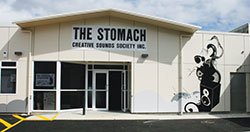 I think the biggest advantage we have is allowing people of all ages to learn to perform. We can put on big shows as well but there are plenty of places to do that - but there aren’t many places to get out and experiment with your original music in front of a live audience.The
idea is that people who aren’t 18 can get out there and get the experience, not only to perform in front of people but to perform live, original music way before they’d normally get to do that. Normally you have to wait until you’re 18 and have
the chance to play in a pub to get that exposure and that learning. We have kids as young as ten years old on the stage and it’s just such a unique opportunity for them to be able to gather such experience at such a young age. By the time they
become able to go and play in a pub they are already seasoned musicians. It’s just giving them a bit of a leg up. It’s great to have somewhere that you can just come and not be judged on the type of music you play or the clothes you wear or how
loud you wanna turn your amp up.
I think the biggest advantage we have is allowing people of all ages to learn to perform. We can put on big shows as well but there are plenty of places to do that - but there aren’t many places to get out and experiment with your original music in front of a live audience.The
idea is that people who aren’t 18 can get out there and get the experience, not only to perform in front of people but to perform live, original music way before they’d normally get to do that. Normally you have to wait until you’re 18 and have
the chance to play in a pub to get that exposure and that learning. We have kids as young as ten years old on the stage and it’s just such a unique opportunity for them to be able to gather such experience at such a young age. By the time they
become able to go and play in a pub they are already seasoned musicians. It’s just giving them a bit of a leg up. It’s great to have somewhere that you can just come and not be judged on the type of music you play or the clothes you wear or how
loud you wanna turn your amp up.
It’s good for the parents to understand that there is no booze, and that that’s not what it’s about, so that they feel comfortable to drop their kids off here. Because we’re a social institution people understand when they walk through the door that they’re coming to a safe environment and that everyone’s just here to have a good time and to celebrate original music.
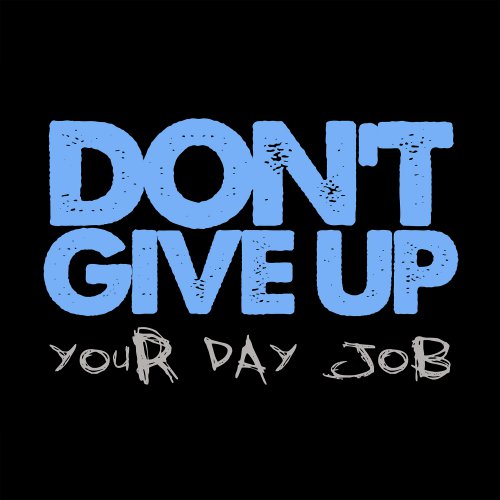
On episode #118 we chatted to Wellington director, playwright and performer Cassandra Tse. Founder and director of the Red Scare Theatre Company, Cassandra recently directed Single Asian Female and her previous work includes Bloodlines (2014), Long Ago, Long Ago (2015), Ordinary Days (2016), Yellow Face (2017), A New Brain (2017), The Bone Thief (2018), Gutenberg! The Musical! (2018), The Aliens (2019), and That’s All She Wrote (2020). We had a great chat about the ins and outs of putting on stage productions and building a career in the arts.
On episode #119 we talked to actor, writer and director Tim Balme. Tim has had a full and varied career. His work has included Braindead, Shortland Street, Mercy Peak, Outrageous Fortune, The Almighty Johnsons and his current project The Brokenwood Mysteries. We chatted about how Tim got his start in acting, working with Peter Jackson, how he approaches his craft and his experience stripping! Great chat!
Listen to our episodes on our website, iTunes, Stitcher, Spotify, iHeart Radio, Player.FM, TuneIn
and all other good podcast apps!
DON’T GIVE UP YOUR DAY JOB - THE PODCAST
www.dontgiveupyourdayjob.co.nz


New Artist Pages
The following new artist pages have been added to Muzic.net.nz during the past month:
New Reviews and Interviews
Check out our latest reviews and interviews at the below links:
Have a look at our latest photo galleries at the below links:
Artist Galleries
Feature Galleries

Our next issue is going out on Sunday 1 August!
If you are a NZ musician and you would like to promote your music,
we would love to feature you in one of our 2021 newsletters.
You can choose the date which suits you.
We can also feature record labels, venues, music stores, music websites...
anything that has something to do with NZ music
Email [email protected] for more info.
Muzic.net.nz newsletters are currently sent out to over 8550 members!
With this number growing every day, featuring in our newsletter is an excellent promotional tool.
Access our newsletter archives here
Important Links
Facebook
Twitter
YouTube
Instagram
Aotearoa Music Industry Collective
Most Viewed Artists
Latest Galleries
NZ Top 10 Singles
- FORTNIGHT
Taylor Swift feat. Post Malone - TOO SWEET
Hozier - DOWN BAD
Taylor Swift - THE TORTURED POETS DEPARTMENT
Taylor Swift - SO LONG, LONDON
Taylor Swift - I CAN DO IT WITH A BROKEN HEART
Taylor Swift - MY BOY ONLY BREAKS HIS FAVORITE TOYS
Taylor Swift - BUT DADDY I LOVE HIM
Taylor Swift - FLORIDA!!!
Taylor Swift feat. Florence And The Machine - WHO'S AFRAID OF LITTLE OLD ME?
Taylor Swift

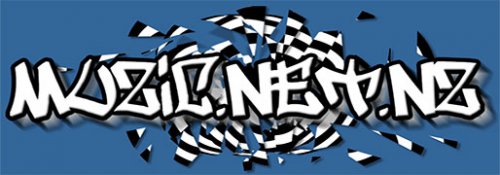

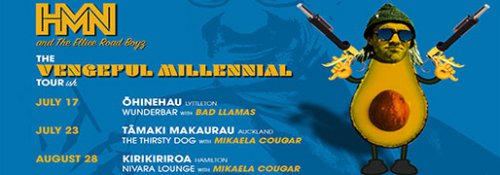

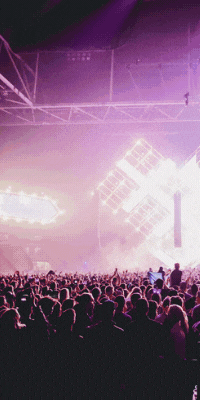


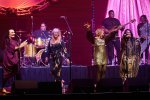



 Report A Problem
Report A Problem

